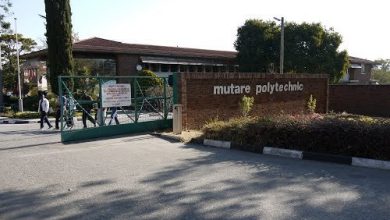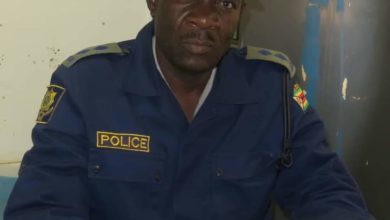Kasukuwere failed to prove he was out of Zim on medical grounds: Supreme Court

The Supreme Court explained that it dismissed presidential aspirant Saviour Kasukuwere’s appeal against his disqualification because he failed to demonstrate that he was absent from his constituency for medical reasons.
Kasukuwere was forbidden from running in the August 23 harmonised elections by the High Court on July 12, 2023, since he had been a non-resident in his constituency (Mt. Darwin) for at least 18 months.
This was after a Zanu PF youth Lovedale Mangwana filed a complaint saying Kasukuwere had not been in Zimbabwe for 18 months and had ceased to be a registered voter, making him ineligible to run as a candidate under the Electoral Act.
Kasukuwere then filed an appeal with the Supreme Court against his dismissal, despite admitting to leaving the country momentarily for medical treatment.
Supreme Court Judges Justices Antonia Guvava, Chinembiri Bhunu, and Felistus Chatukuta ruled in their full judgment released on August 7, 2023, that they correctly found out Kasukuwere, the appellant in this case, failed to prove he was out of his constituency on medical grounds.
They even noted that his documents in relation to his appeal were notarised from South Africa.
The judges ruled that because proof of his absence on medical grounds was in his personal knowledge, his absence resulted in him being presumed to have ceased to be a registered voter by operation of law.
“The Court agrees with the first respondent’s submissions. It is trite that what is admitted need not be proved. Therefore, this Court holds that once the appellant conceded that he left the country and therefore his constituency, the onus shifted to him to prove that he was not absent from the country and his constituency for a continuous period of 18 months. This is so because this is information which is specifically within his knowledge,” read part of the judgment.
The Supreme Court judges said the court was correct in determining that Kasukuwere bore the burden of demonstrating when he returned to Zimbabwe because the proof of his return was in his exclusive knowledge.
“It is common cause that the appellant is not within the country. The court a quo was correct in taking judicial notice, as this Court also does, of the fact that all the appellant’s affidavits in relation to this matter are being notarised from South Africa. The appellant failed to discharge the onus cast upon him,” read the judgment.
“The court a quo was therefore correct in making a factual finding that the appellant was not in the country and his constituency for a continuous period of 18 months. It is trite that this Court does not lightly interfere with factual findings of a lower court.”
The Supreme Court stated that it exercised its discretion and there is no basis for contesting the factual finding, which was made, noting that Section 23 (3) of the Electoral Act is a deeming clause whose provision meaning Kasukwuere’s absenteeism over a continuous period of 18 months from Mt. Darwin resulted in him ‘unavoidably’ ceasing to be registered to vote.
“In other words, once a registered voter is absent from his constituency for the prescribed period, he automatically ceases to be a registered voter. The appellant’s contention that he was absent from his constituency on medical grounds appears to be premised on s 33 (3) of the Act which provides
“(3) In determining the period of absence of any person for the purposes of subsection 2, no account shall be taken of any period during which the person-
(d) resides outside Zimbabwe on account of ill health and disability.”
That section, according to the Supreme Court judges, relates to instances where the voter registration officer considers whether a voter has become disqualified for registration as a voter. In those circumstances, the Supreme Court judges said the onus lies on Kasukuwere to prove the reason for absenteeism where apart from his mere say, he did not produce any evidence to show that he was temporarily absent from his constituency on medical grounds for the duration of the prescribed period.
“As correctly found by the court a quo, the appellant failed to prove that he was out of his constituency on medical grounds. Proof of his absence on medical grounds was within his personal knowledge. The appellant’s absence, therefore, resulted in him being deemed to have ceased to be a registered voter by operation of law.”
“ Accordingly, there is no merit in the appellant’s appeal on this issue,” read part of the judgment.






